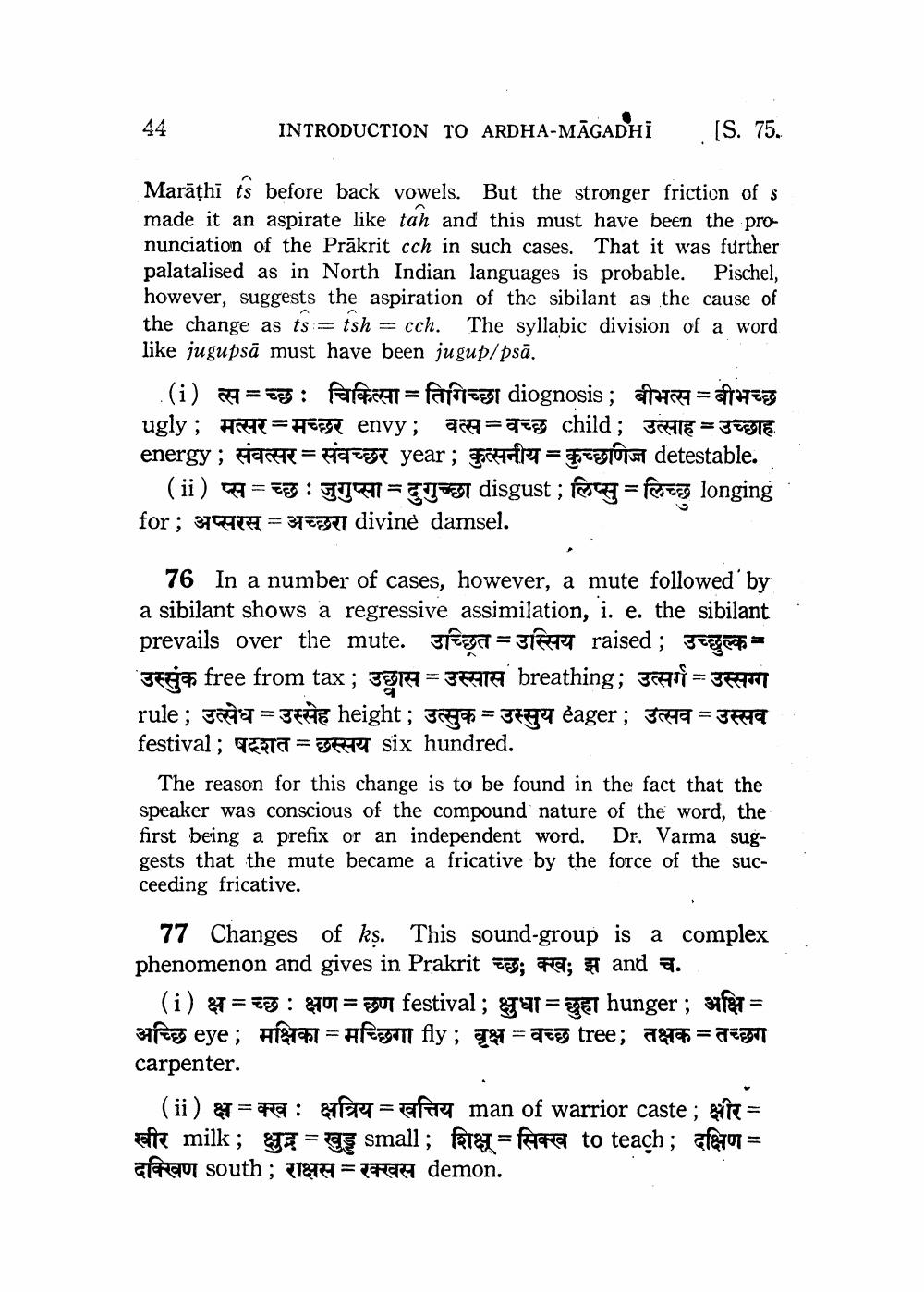________________
INTRODUCTION TO ARDHA-MĀGADHI
[S. 75.
Marāthi ts before back vowels. But the stronger friction of s made it an aspirate like tah and this must have been the pronunciation of the Prākrit cch in such cases. That it was further palatalised as in North Indian languages is probable. Pischel, however, suggests the aspiration of the sibilant as the cause of the change as ts = tsh = cch. The syllabic division of a word like jugupsā must have been jugup/psā.
(i) त्स= च्छ : चिकित्सा = तिगिच्छा diognosis; बीभत्स = बीभच्छ ugly; मत्सर-मच्छर envy; वत्स-वच्छ child; उत्साह = उच्छाह. energy; संवत्सर =संवच्छर year; कुत्सनीय = कुच्छाणिज detestable.
(ii) प्स = च्छ : जुगुप्सा = दुगुच्छा disgust ; लिप्सु = लिच्छ longing for ; अप्सरस् = अच्छरा divine damsel.
76 In a number of cases, however, a mute followed by a sibilant shows a regressive assimilation, i. e. the sibilant prevails over the mute. उच्छ्रित = उस्सिय raised ; उच्छुल्क = उस्सुंक free from tax ; उछास = उस्सास breathing; उत्सर्ग = उस्सग्ग rule ; उत्सेध = उस्सेह height; उत्सुक = उस्सुय eager ; उत्सव = उस्सव festival; षट्शत = छस्सय six hundred.
The reason for this change is to be found in the fact that the speaker was conscious of the compound nature of the word, the first being a prefix or an independent word. Dr. Varma suggests that the mute became a fricative by the force of the succeeding fricative.
77 Changes of ks. This sound-group is a complex phenomenon and gives in Prakrit च्छ; क्ख; झ and च.
(i) क्ष = च्छ : क्षण = छण festival; क्षुधा= छुहा hunger ; अक्षि = अच्छि eye; मक्षिका मच्छिगा fly ; वृक्ष = वच्छ tree; तक्षक = तच्छग carpenter.
(ii) क्ष= क्ख : क्षत्रिय = खत्तिय man of warrior caste ; क्षीर = खीर milk ; क्षुद्र = खुड्डु small; शिष = सिक्ख to teach; दक्षिण = दक्खिण south; राक्षस= रक्खस demon.




